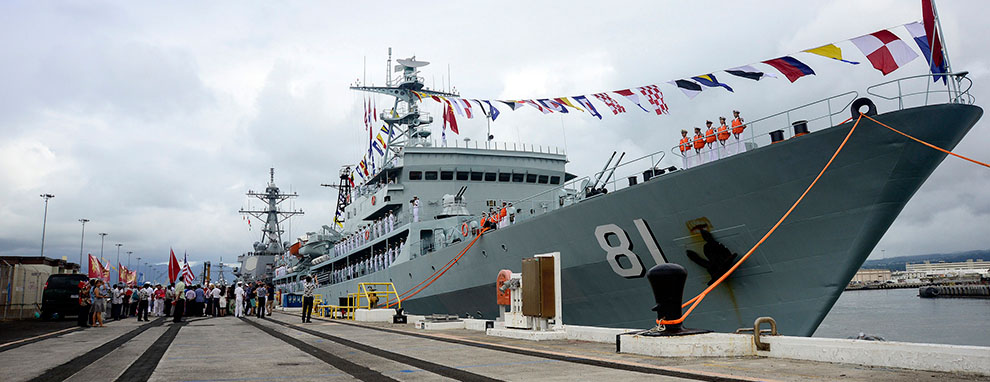Since Chinese President Xi Jinping took power, political commissars assigned to all Chinese naval ships have started learning about battle command in addition to political work training.
This has enabled commissars to plan and even lead combat operations, Zi Yang, a senior analyst with the China Programme at Nanyang Technological University, Singapore said.
One goal of increased battle command education is to give commissars a better understanding of service members’ daily lives to improve their political work, Cmdr. Jeff W. Benson, a military fellow at the Center for Strategic and International Studies, said. Political work is ensuring a strong allegiance to the Chinese Communist Party on all levels of the military, he said.
In 2014 at the All-People’s Liberation Army Political Work conference in Gutian, Xi called for “intensified indoctrination of the troops to ensure strong political convictions,” a CSIS report recently released by Yang and Benson said.
Since this announcement, commissars have been tested on their understanding of naval operations similar to captains, the report said.
Commissars have always had an equal role in Chinese naval command, and the increase in battle command training fits with a long tradition of ensuring party control of the Chinese military, the report said.
As China continues to build its navy in the Indo-Pacific, there is no evidence that it will change the dual leadership style. Political commissars being better versed in battle command will possibly solidify party control through all levels of the Chinese navy, the report said.
The report detailed the unusual leadership style in People’s Liberation Army Navy vessels– equal power split between a military officer and a political commissar, unlike the single commanding officer on a U.S. naval vessel.
While the two Chinese ship leaders have equivalent authority for all decisions on the vessel, responsibilities are split, Yang said. Military officers focus on the tangible needs of the warship and military goals, whereas commissars’ duties focus on building party loyalty within the crew and shaping military lifestyle.
“These two people, they’re also part of this thing called the party standing committee,” Yang said. “A political officer is actually the chair. This entity is the supreme decision-making organization.”
The two roles are meant to work as one unit, the report said. However, both the military officer and the commissar can act independently or even take on each other’s duties if needed. In 1988 a political commissar even led troops in a combat operation when the captain had fallen ill.


